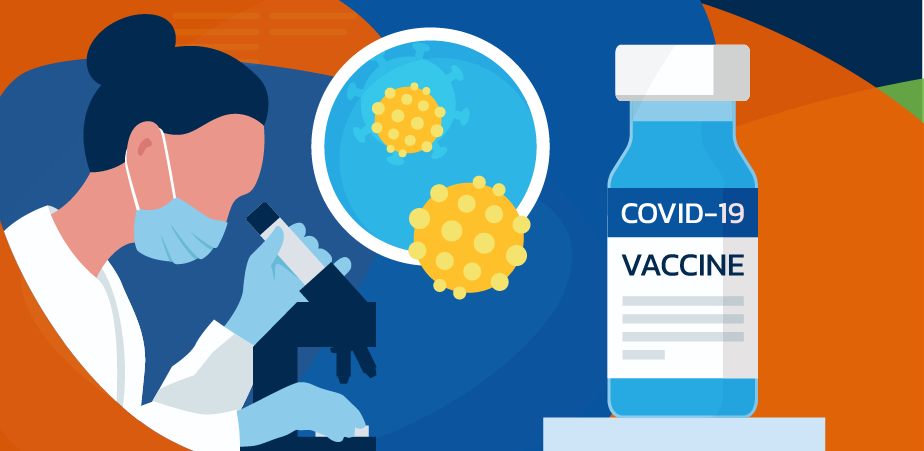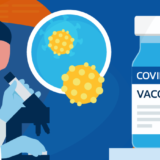COVID-19 Vaccination Arriving at our Clinic

We are pleased to announce that MWMC has been approved to participate from Phase 1b roll-out of national COVID-19 vaccine, and we are proud to join the force to fight against COVID-19.
Phase 1b starts from older people and people with certain underlying conditions, and gradually roll out to the general public. In next few weeks, we will inform the eligible patients once the vaccine becomes available. Any eligible Medicare card holder is welcome to call the reception to make a reservation, it will be free. For more information about the Government’s roll-out strategy, please read Australia’s COVID-19 vaccine national roll-out strategy.
For vaccination, please carefully read the following COVID-19 information, including
To keep up to date with the latest progress, and to ensure your information is reliable, visit health.gov.au/covid19-vaccines.
Preparing for COVID-19 vaccination
Make sure your details are correct
While you wait for your appointment, there are some things you can do now to get ready. Make sure your details are up to date with Medicare. You can do this using either your:
- Medicare online account through myGov
- the Express Plus Medicare app.
- calling the Medicare program.
If you don’t have your account set up, you can:
- Enrol in Medicare, if you’re not already
- Set up your Medicare online account, if you’re enrolled in Medicare, but don’t have Medicare linked to
- Get an Individual Health Identifier (IHI), if you’re not eligible for
Once you’ve had your vaccine, you’ll be able to get an immunisation history statement to prove your vaccination status. You can find out how to get your immunisation history statement on the Services Australia website.
Getting ready for your appointment
There is a limited supply of COVID-19 vaccines in Australia and globally. This means, people who have the highest risk of severe COVID-19 and/or exposure to the virus will receive the vaccine first. Other people will receive vaccine over time. Find out who will be prioritised for vaccination by visiting www.health.gov.au/covid19-vaccines.
You should not attend a COVID-19 vaccination appointment if you:
- Are unwell with fever, cough, runny nose or other symptoms that could be from COVID-19.
- Are awaiting COVID-19 test
- Have tested positive with COVID-19 and you are in
- Are in
- Are a close contact of someone with COVID-19.
If you fall into any of the above categories, check with your immunisation provider. You may need to reschedule your appointment for vaccination.COVID-19 vaccines are not effective at treating COVID-19.
If you have had another vaccine in the 14 days before your COVID-19 vaccine appointment, tell your immunisation provider. Your immunisation provider may ask you to reschedule your appointment.
You are not required to test for COVID-19 before vaccination if you do not have a fever or any respiratory symptoms.
Plan ahead for two doses
It is important that you receive two doses of your COVID-19 vaccine at least three weeks apart. Full protection against COVID-19 will not occur until about a week after your second dose.
What to expect at your vaccination appointment
You should bring the following to your COVID-19 vaccination appointment:
- Photo ID, if you have
- Medicare card, if you have
- Employee ID, if you are getting a COVID-19 vaccine because of your occupation.
- Information about any of your medical conditions, allergies, bleeding disorders or immunocompromise (i.e. weakened immune system).
- Information about any medications you are
- Information about any previous COVID-19 vaccine received (vaccine brand and date of vaccination).
- Information about any reactions you have had to any vaccine in the
- Name of your current GP/s and any specialist doctors you
- A face mask (if required by your state/territory).
At your appointment, you will be able to discuss any questions you have about COVID-19 vaccination with your immunisation provider.
Tell your immunisation provider if you have any medical conditions or if you are taking any medications. Especially make sure to tell them if you:
- Have had anaphylaxis (a type of severe allergic reaction) to any substance, or if you have an adrenaline autoinjector (e.g. EpiPen).
- Have had a reaction to any vaccine in the
- Have a bleeding disorder or are receiving anticoagulant therapy (a blood thinner).
- Are pregnant, breastfeeding or planning
- Are immunocompromised (i.e. have a weakened immune system or take immune suppressing medication).
- Have received another COVID-19 vaccine (and which brand).
- Have received any vaccine in the last 14
In some circumstances, it may be better to have a discussion with your healthcare provider about vaccination before making an appointment for vaccination. You can also read the Information on COVID-19 Pfizer (Comirnaty) vaccine.
How you will receive the vaccine
You will receive the vaccine as an injection, most commonly into your upper arm muscle. You must remain in the vaccination clinic for observation for at least 15 minutes after vaccination. Depending on your medical history, you may be asked to wait in the clinic for 30 minutes.
How is the information you provide at your appointment used
For information on how your personal details are collected, stored and used visit https://www.health.gov.au/covid19-vaccines
After your COVID-19 vaccination
About the vaccine
Today you have received the Comirnaty (Pfizer Australia Pty Ltd) vaccine.
This vaccine can prevent people from becoming ill from COVID-19. Comirnaty does not contain any live virus, and it cannot give you COVID-19. It contains the genetic code for an important part of the SARS-CoV-2 virus called the spike protein. After getting the vaccine, your body makes copies of the spike protein, and your immune system will learn to recognise and fight against the SARS-CoV-2 virus.
What to expect after vaccination
As with any vaccine, you may have some side effects after receiving a COVID-19 vaccine.
Common side effects after Comirnaty include:
- pain or swelling at the injection site
- tiredness
- headache
- muscle pain
- chills
- fever
- joint pain.
Less common side effects after Comirnaty include:
- redness at the injection site
- nausea
- enlarged lymph nodes
- feeling unwell
- pain in limb
- insomnia
- itching at the injection
These side effects are usually mild and usually go away within one or two days. If you experience pain at the injection site or fever, headaches or body aches after vaccination, you can take paracetamol or ibuprofen. These help reduce the above symptoms (you do not need to take paracetamol or ibuprofen before vaccination). If there is swelling at the injection site, you can use a cold compress.
Rare side effects that have been reported after Comirnaty are:
- Severe allergic reaction (anaphylaxis)
- Temporary one-sided facial drooping (also called Bell’s palsy).
You should seek medical attention after vaccination if:
- You think you are having an allergic reaction. Call 000 if you experience severe symptoms, such as difficulty breathing, wheezing, a fast heartbeat or
- You are worried about a potential side effect or have new or unexpected
- You have an expected side effect of the vaccine which has not gone away after a few
For symptoms which are not urgent, you can see your regular healthcare provider (usually your GP).
Vaccine safety monitoring and reporting side effects
Suspected side effects can be reported to your vaccination provider or other healthcare professional. They will then make a formal report on your behalf to your state or territory health department or directly to the Therapeutic Goods Administration (TGA).
If you would prefer to report it yourself, please visit the reporting suspected side effects associated with a COVID-19 vaccine webpage on the TGA website and follow the directions on the page.
COVID-19 testing after vaccination
Some side effects from COVID-19 vaccination might be similar to symptoms of COVID-19 (e.g. fever), though Comirnaty does not contain any live virus and cannot cause COVID-19. You may not need to get a COVID-19 test or isolate if you develop general symptoms like fever, headache or tiredness in the first two days after vaccination and if you are sure that you don’t have any respiratory symptoms (e.g. runny nose, cough, sore throat, loss of smell or loss of taste). However, you should check the current guidelines in your state/territory for the most up- to-date information. This advice may change in the event of a COVID-19 outbreak in your local area. You may still need to get a COVID-19 test if you meet other criteria, e.g. you are a close contact of a known COVID-19 case. If in doubt, seek medical assessment.
Remember your second appointment
It is important that you receive two doses of Comirnaty (Pfizer), at least three weeks apart. Maximum protection against COVID-19 will not occur until at least a week after your second dose.
How is the information you provide at your appointment used
For information on how your personal details are collected, stored and used visit https://www.health.gov.au/covid19-vaccines



